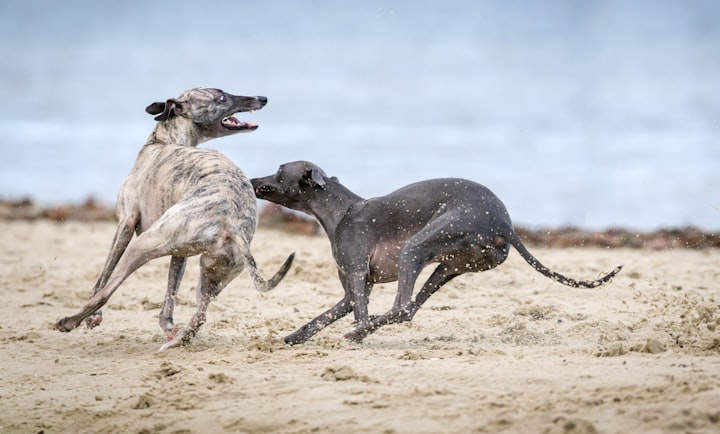How to Keep Your Pets in Great Shape During COVID-19
Keep your pets safe and happy during COVID-19 with these helpful planning tips on animal care.

As the crisis surrounding the COVID-19 coronavirus continues to unfold, more and more people are taking long-term steps to care for themselves or their loved ones and their pets. With uncertainty surrounding the ongoing lockdowns and restrictions, many take the steps necessary to ensure that there's a safe and livable home for themselves and a pleasant and healthy environment for their cats, dogs, and other cuddly pets.
Lockdowns and restrictions affect pet owners' movement and our pets' ability to get sunshine, exercise, and interact with others - all things that are necessary to maintain the happiness and health of your animals.
Here are a few things you can do to keep your cat, dog, and other pets in good shape as the COVID-19 crisis rolls won. Among the more popular questions surrounding the physical and psychological well-being of your pets, we have:
- Productive ways to reduce pet anxiety
- Emergency items your pet might need
- Strategies for managing your pet if you are away
- Daily routines and essentials to have at home
- What to do if you can no longer care for your pet
Reducing Family Pet Anxiety
One of the most obvious ways to reduce your dog or cats' anxiety is to spend time with your pet. This includes playtime but also quiet time with only passive activity taking place.
Reduce background noise, sudden noise movement, and allow a cool, quiet environment for your dog to spend time in during the day.
You can also calm a nervous dog with soft chews that contain natural ingredients to assist in stress reduction, sleep, and general well being.
Diet can sometimes be an underlying cause of irritation and stress for your dog or family pet. Sudden changes in the diet impact your dog's ability to rest. If you've changed your dog's diet, perhaps out of necessity under local restrictions, do you may need to address those dietary changes to help alleviate some of the stress of your pet.
Having a constant supply of clean, fresh water is also essential to pet emotional and physical well-being.
How to keep your pet's daily exercise and rest periods routine to help your pet form good habits and avoid sudden changes in your routine where possible.
Have Your Emergency Plan in Place
It may be that you have to leave home quickly or are unable to get out as freely as you would normally like to do.
Your emergency planned should include resources to cope with:
- Being in a state of isolation
- Separation
- Restricted socializing
- Medical needs
- Food and water needs
Make sure you have a bugout bag with all of your pet's daily medical and grooming needs. This could include brushes, washes, prescribed medication, and more.
If your pet requires playtime, put in a favorite toy or activity. Have a way to collect and hold food and fresh water and, if needed, a way to restrain your pet with a lead or suitably sized enclosure.
A bugout bag for your pet is as important and useful, whether your bugout is occurring in the home or out of the house.
What to Do if You Can't be with Your Pet
If you travel for work or are often separated from your pet at points throughout the day, you need to have a plan in place should you not be able to get home to your pet.
- Have the phone numbers of available carers who can come around and check on your pet
- If possible, have someone available to take your pet to a pre-arranged refuge or pet accommodation service.
- Have your vet's phone number with you if you need advice on the best way to care for your pet in your absence.
Make sure you have a few options for each scenario so that if one option falls through, you can move on to the next.
If you are not going to be with your pet for long periods, consider creating video or audio where your dog can watch or listen in as you interact with him or her.
Daily Routines and Essentials
During periods of restricted movement or lockdown, your regular pet routines may change dramatically - particularly if you have a dog that's used to daily walks.
Added to this is the change in social interactions - within the home through visitors - and out and about in your neighborhood.
Make a plan now on some of the new routines and the adjusted routines you may need to put in place if you find yourself at home with your pet, with nowhere to go.
Think of creative ways to socialize with your pet and exercise your pet and put those routines into practice to reduce the anxiety your pet might experience and the changes in physical activity.
Pets will adapt at varying rates to routine changes, but you need to have your plan in place beforehand so that your own stress levels and relationship with your pet don't suffer.
Finding Alternative Care
It may get to a point where you can no longer care for your pet at all. When this happens, you will need to access a service that can take in refugee animals.
The type of service you will need will depend on the kind of pet you have. Those deemed as wildlife pets will need very specific re-homing, while more regular family pets such as a dog or cat could simply move to a new house.
Consider the types of rehousing services available for your pet, talk to friends and family to see what has worked for them.
Above all, make sure your decision to rehouse your pet minimizes your own anxiety as well as that of your pet.
Look closely at the kinds of rehousing services that are available, check their credentials, and don't be afraid to ask about 'visiting rights' if it is a feasible option for you and your pet.
Feature Image, Pixabay CC0 License
About the Creator
Martin Bagel-Brown
Martin lives in Australia and works in web design. Martin enjoys golf, reading and underwater carpet skiing.






Comments
There are no comments for this story
Be the first to respond and start the conversation.